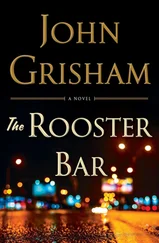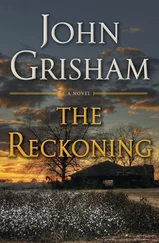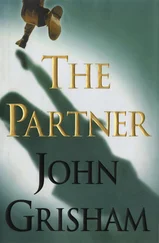He loved collecting his obits. They were all in the files.
He found her thirteen years later, thirteen years after she mocked him in his frat house bedroom, thirteen years after she had stumbled downstairs, drunk like all the rest, and broadcast to the rest of the party that Ross “couldn’t get it up.” Couldn’t perform. She laughed and ran her big mouth, though by the next morning most of the hell-raisers had forgotten the incident. But she kept talking and word spread through their circles. Bannick has a problem. Bannick can’t perform.
Six years later he found his first victim, the scoutmaster. His killing had gone as perfectly as planned. There was not one shred of remorse, not even a twinge of pity as he stepped back and looked at the body of Thad Leawood. It was euphoric, actually, and filled him with an indescribable sense of power, control, and — the best — revenge. From that moment on, he knew he would never stop.
Seven years after Leawood, and with three under his belt, he finally found Eileen. She was selling real estate north of Myrtle Beach, her pretty, smiling face splashed on every yard sign possible, as if she were running for city council. She had listings in a beachside development of forty condos. He rented one of the others for the summer of 1998, before he became a judge. On a Sunday morning, he lured her to an empty unit, one she was trying to sell, price reduced! and the very second when she froze as if she remembered him, he splintered her skull with Leddie. As the rope cut deep and she breathed her last, he hissed into her ear and reminded her of her mockery.
Five hours passed before there was a commotion. As things became frantic and people yelled, he sat with a beer on the balcony of his rental and watched across the courtyard as first responders scurried about. The sounds of sirens made him smile. He waited a week for the cops to come around knocking on doors and looking for witnesses, but they never showed. He paid his lease in full and never returned to the condo.
The crime occurred in the seaside town of Sunset Beach, in Brunswick County, North Carolina. Nine years passed before the county digitized its records, and when it happened Bannick was waiting with his first generation of spyware. As with all the other police departments, he updated his data often, always on the prowl for any movement, always watching with the latest hacker’s toys.
The Eileen story had gone cold after a couple of years. There was never a serious suspect. The file reflected some occasional interest from crime writers, reporters, family members, and other police departments.
Late Friday afternoon, Bannick sent in Rafe to snoop around for the first time in months. Based on the latest digital time and date stamp, the file had not been touched in three years, not since a reporter, or someone claiming to be, wanted to have a look.
The orange stayed down. He tried to nap but was too wired. He grabbed his gym bag and walked around the corner where he spent two hours spinning, rowing, lifting, and pounding the treadmill. When he was beyond exhaustion, he stuck his head into the steam room. When he was certain he would be alone, he stripped and entered and stretched out on his towel.
It was a mistake to call Norris Ozment, but he’d had no choice. Ozment could now link him directly to Verno, the same way Tabor had linked him. But it was unlikely that the authorities in Mississippi would ever find Ozment, and even unlikelier that he would bother to go to them. Why should he?
The judge massaged his temples and tried to breathe slowly as the steam soothed his lungs. The person who filed the complaint with BJC did so anonymously and with the understanding that nothing would be entered into a digital file. Everything would be kept offline. The person who hired Rollie Tabor to pose as Jeff Dunlap and snoop through the old court case did so with the agreement that Tabor would store nothing online. The person who mailed the two anonymous letters went to great lengths to remove all possible clues.
The person knew about Eileen Nickleberry.
All these persons were the same. There was simply no other explanation. The evidence was far too coincidental. It was imperative to find this person.
And if he found him, what would the good judge do? He could certainly kill him, that would be easy enough. But was it too late? Did Ms. Stoltz at BJC have enough damning evidence to go to the police? He told himself the answer was no, and he believed it. Accusing and indicting were easy enough, but convicting would be impossible. He presided over murder trials, studied forensics and knew more about the science than the experts, and, most importantly, he knew how much evidence was needed to convict. A helluva lot! Beyond a reasonable doubt. Far more than any low-paid cop had been able to find along his graveyard trail.
There were a dozen on his list, give or take. More or less. Ten down, two to go. Maybe three. Dunwoody didn’t count because he was never on the list. His timing was bad, and he was one victim that still troubled the judge. He didn’t deserve to die, like the others. Troubled as he was, though, there was nothing he could do about it.
And now there were far more serious troubles.
A killer can’t help but look over his shoulder, and for years he had feared this reckoning. In fact, he’d had so much time to think about it that he had pieced together several possible reactions. One was to simply go away, vanish, before being subjected to the humiliation of an indictment, arrest, and trial. He had plenty of money and there was a big world out there. He had traveled extensively and been to several places where he could easily blend in and never be found. He preferred those countries beyond the reach of U.S. extradition treaties.
Another strategy was to stay and fight. Declare innocence, even persecution, and lawyer up for a big trial. He knew precisely who to hire for his defense. No jury could convict him because no police department had the evidence. It was his firm belief that no prosecutor would ever indict, for the same reason. No sitting judge had ever been put on trial for murder in America, and to do so would cause a media circus of epic proportions. Even the most ambitious prosecutor would shy away from the horror of losing before such an audience.
Which of his murders would be the easiest to prove at trial? It was the great question that he toyed with almost every day. Because of his cunning and brilliance, he was of the lofty opinion that none of them could survive past the indictment phase. Staying and fighting was the most attractive option.
Staying would allow him to finish his list.
The last strategy was the easiest. He could simply end the game himself and take his crimes to his grave.
Judge Bannick allowed himself a martini late on Friday afternoons, usually with another judge or two, and there were several preferred bars in the area. One favorite was at a club on the oceanfront with the Gulf stretching in the distance. On this Friday, though, he was in no mood for socializing, but he did need the martini. He mixed it in the back room and sipped it in the Vault, and as he did so he asked himself the obvious question: “Who is this person?”
A cop would not bother with anonymous mail. Why waste the time? Why alert the suspect? Why play games? And the cops weren’t looking. He had hacked his way into all the police departments and he knew how cold the files were. The sheriff in Biloxi and his detective Napier were still working the case every day, but that was only because there were two victims and one was local. They had nothing to show for their efforts and now, after six months, they were following the same pattern as the others.
A private investigator would cost too much money. Regardless of the hourly rate, there was simply too much labor involved to link the murder of Eileen in 1998, in North Carolina, to the murder of Perry Kronke in 2012, then to Verno and Dunwoody in Biloxi last fall. No one could afford such a project. He knew his victims and their families well. Perry Kronke was by far the wealthiest of the lot, but his widow was in poor health and probably reluctant to spend a fortune trying to find his killer. His two sons were Miami businessmen of modest success.
Читать дальше












